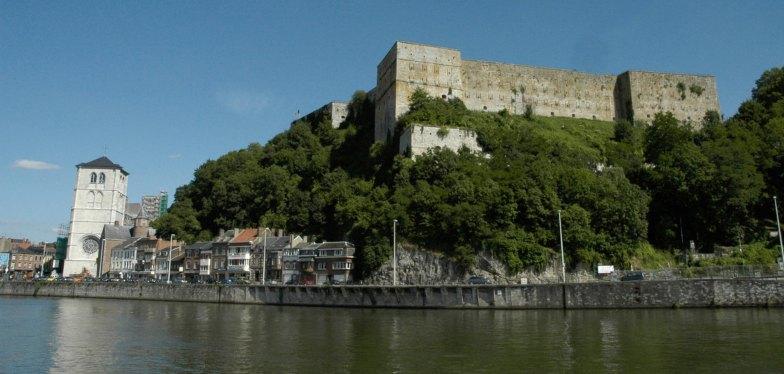Huy, the first "free" city in Western Europe

In 1066, Prince-Bishop Theoduin of Bavaria granted the people of Huy a charter, the first of its kind in Europe, in exchange for their promise to finance the reconstruction of the Notre-Dame Church.
In the 11th century, the city of Huy was part of the principality of Liege, which itself belonged to Lower Lorraine, a duchy which stretched from the North Sea to the Jura and which had been connected to the Holy Roman Empire since 925. At the time, tensions were running particularly high with the county of Flanders, which planned to expand its territorial possessions at the expense of the empire.
Taking advantage of the absence of Emperor Henry III, who had travelled to Italy, Baldwin V, Count of Flanders, decided to attack the cities of Thuin and Huy in 1053. The small city on the Meuse was razed and the collegiate church of Notre-Dame was not spared in the onslaught.
In 1066, the Prince-Bishop of Liege, Theoduin of Bavaria, considered bestowing the city with a new religious edifice, but the project exceeded the latter's financial capacities. As such, he asked the people of Huy to donate half of their movable property, i.e., half of their commercial and industrial capital. And in exchange for this financial support, they were granted concessions which created favourable conditions for the economy of their city. And so, on 27 August 1066, the Prince-Bishop of Liege solemnly granted the city of Huy a charter that made its inhabitants the first free burghers in Western Europe.
Among the new rights granted at the time were the right of custody of the castle in the event of an episcopal vacancy, the guarantee of the right of asylum, the inviolability of their home, the abolition of private vengeance and the right of resistance in the event of abuse or exaggerated demands by the lord.